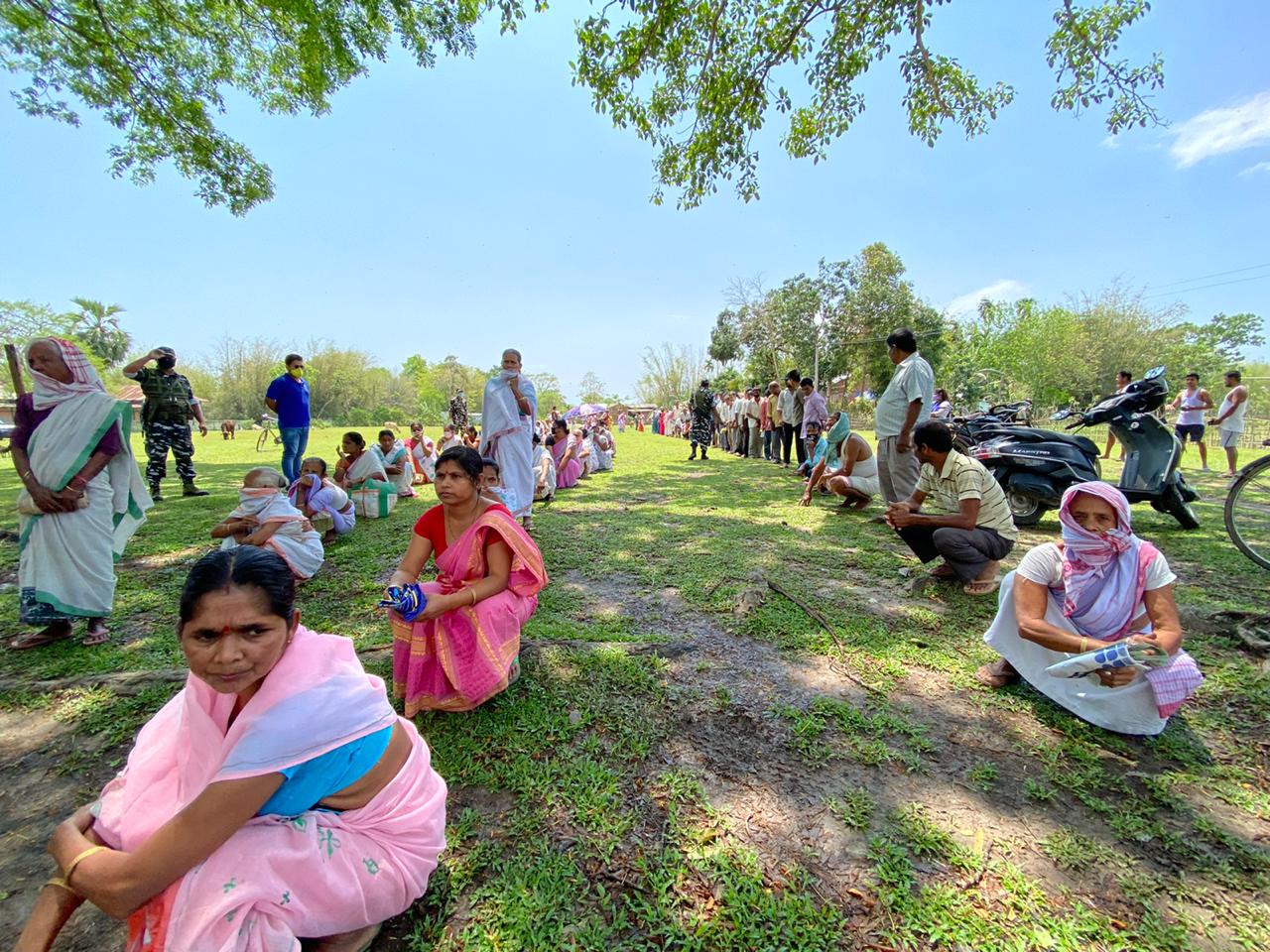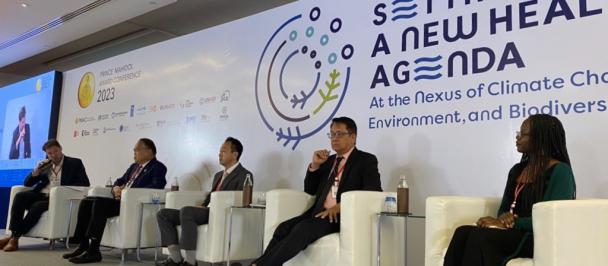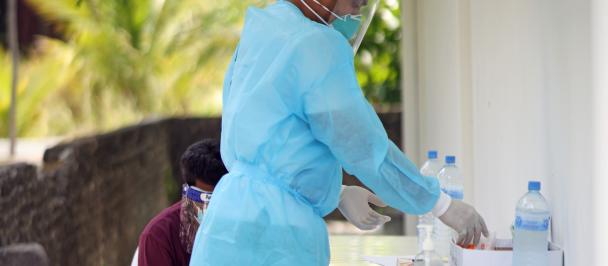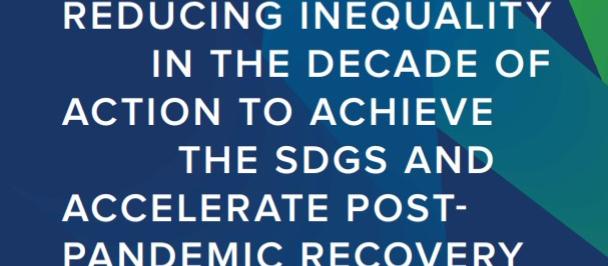An Interview with Shoko Noda, Resident Representative, UNDP India
Charting a Post-COVID Vision of Development
May 19, 2020
1. What one issue do you think will make the most change for the future of development, and why?
Today’s pandemic reminds us, in the starkest way possible, of the inequality and vulnerability in our health systems, social protection systems and public services. It has exposed non-inclusive and unsustainable growth across all countries.
The 2019 Global Multidimensional Poverty Index (MPI) report showed remarkable development progresses, in India. Since 1990, life expectancy at birth increased by 11.6 years, mean years of schooling by 3.5 years. Between 2006 and 2016, 271 million people were lifted out of poverty.
COVID-19 could backtrack these significant development gains India has hard earned. The lockdown and other restrictions have brought economic activity almost to a standstill, particularly in the informal sectors, where 450 million people – over 80 percent of labour force - work. The plight of the informal workers is a clear indication that the growth process left out this segment of the economic workforce. There is every possibility that many of these workers and their families will fall into poverty.
Despite the successful poverty reduction record, the years of economic growth have not reduced inequality. It is estimated that 85 percent of wealth is owned by 10 percent of the population. The gap between the haves and have-nots is likely to widen now.
Access to health care was insufficient even in pre-COVID time. It is estimated that only 18 percent of the urban population have health insurance coverage, and the rate drops to 14 percent in rural areas[1]. Overall, 1.3 billion people have access only to limited public health facilities, let alone the required sophisticated treatment for COVID. “Out of pocket” expenses, not covered by health schemes, is a huge burden on the poor and even middle-class families.
Today there is an opportunity to change those attributes of the development trajectory, which led to the silent build-up of the multi-faceted inequalities. Along with the reform of the health sector to correct “health inequality, the provision of effective social protection measures to all informal sector workers, as well as other vulnerable groups, could be the most important development policy introduced as part of the response to the economic crisis triggered by the Covid-19 crisis pandemic.
2. How can India (and possibly the world) achieve that ambitious result?
Policy makers and the business community should come together to make this crisis the turning point for the country to introduce a more inclusive economy and society. In mid-May, the government of India announced an economic stimulus package equivalent to about 265 billion US dollars. One of the most critical issues it could address is the protection of the 450 million informal workers who have either lost their jobs or are out of work at this moment. The government could build on the experience with the Pradhan Mantri Garib Kalyan Yojana (PMGKY) - the largest ongoing social protection programme in India, with an estimated beneficiary of 320 million. Given that eight out of 10 workers, in India, work in the informal sector, it is imperative that each worker is registered under a similar protection mechanism, which formal workers enjoy.
The private sector can also take appropriate steps to protect the interests of informal workers – they are an asset, and we are already hearing concerns how business cannot restart unless the migrant workers return. Migrant workers must be given the option of returning to their original destinations under a thoroughly revised guideline, which protects their welfare, crisis or otherwise.
A Universal Basic Income (UBI) scheme could further strengthen government’s social protection system amid the pandemic effects. It could reduce the transaction costs of managing the multiple schemes under PMGKY, remove any element of arbitrariness and ensure more accurate targeting of intended recipients. UBI could spur productivity, generate greater consumption and demand in the economy, improve health, alleviate poverty, reduce crime and violence, raise education and improve the quality of life. The level of UBI must be adequate to ensure meaningful protection. It should be financed with more fair taxation, prevention of tax evasion, and re-prioritizing government expenditure across sectors.
The stimulus must deliver new jobs and businesses through a clean and green transition. There is an urgent need for India to shift from the brown to a green economy. Public funds should be used to invest in the future and flow to sustainable sectors and projects that help the environment and the climate. This will not only help in achieving our goals for sustainable growth but will go a long way to solve the air and water pollution crisis that India is grappling with. We at UNDP, and our UN and external partners, are committed to supporting the government in such efforts.
3. What can we do as UNDP to help countries make it happen, in very concrete ways?
From the outset, UNDP has been working closely with the Government of India, state governments, CSOs, communities and other UN agencies to support governments efforts in the response to the pandemic and early assistance to affected people. In the first phase, our focus are frontline health workers and most vulnerable communities.
Our current priority is to help those who are at the frontline, to work for our society. UNDP and our partners have provided safety kits containing masks, gloves, hand sanitizers and soaps to over 18,000 waste pickers and distributed around 100,000 food packets and 500,000 kg of food grains during the lockdown. To protect frontline health workers from new infections, UNDP is supporting development of a simple smartphone app to monitor safe bio-medical waste disposal, in real time, at health facilities.
As the pandemic evolves, we are shifting our focus on mobilising community networks to reach out to informal workers and the most vulnerable, to help them access their entitlements from various social protection schemes. In partnership with community organisations, we will also engage the most affected populations to start new jobs and livelihood opportunities, such as family farming, shops, and other micro business. Our target is to reach out to 1.25 million people.
The strength of my team is to bring digital solutions, to the COVID-19 response. We have designed an add-on function in the existing Electronic Vaccine Intelligence Network (eVIN) platform to trace the supply chain of personal protective equipment (PPE), in over 28,000 health facilities. We also supported the state government of Uttar Pradesh to introduce a new mobile application where government officials are capturing information of returning migrants such as educational level, and skillsets. Once the information is collated, it will help develop an economic recovery plan based on newly available labour force in the state.
We will also leverage our various policy networks, including the SDG Impact initiative to engage business leaders in rethinking the development process - trying to bridge the gap between technology development and business processes. UNDP will also work with the Government and the private sector to make public and private data readily accessible and useable, to inform the post-COVID recovery strategy.
4. What one lesson or experience do you wish to share related to the above?
Working at home, I notice that air pollution levels have come down dramatically. I even learned that scientists have claimed that the Ganges water is potable in upstream places such as Haridwar and even Varanasi. Wild animals are freely walking on vehicle-free roads. The COVID-19 lockdown is providing a temporary respite from the assault we have been launching on nature. We must make our production and consumption much more environment and climate sensitive.
Even more importantly, the aggressive pursuit of economic growth has also left out a majority of the population, who do not even know where their next meal will come from. And these are the very same people who worked hard to keep our factories running, enabling business to reap in profits, and raising economic growth – the benefits of which they do not share.
Just as COVID-19 spares no one, social protection schemes can be set up in a way that they reach everyone. It serves the dual purpose of a lean and inclusive social safety net, and a very effective fiscal stimulus. Post-COVID-19 should be an era for all of us to reimagine our present and future, reset the gaps and inequalities, and create a more inclusive and decent society. COVID-19 provides us an opportunity to collectively work, to achieve the Sustainable Development Goals. Let’s walk the talk and Leave No One Behind.

 Locations
Locations



